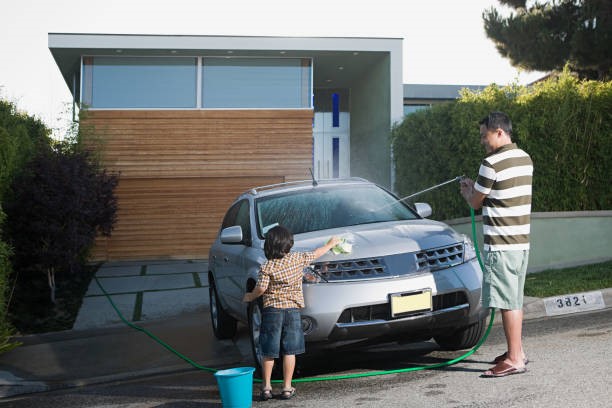7 Simple Habits to Keep Your Car in Top Shape

For most people, a car isn’t just a luxury—it’s a daily necessity. It takes you to work, helps with errands, carries your family on road trips, and saves hours of commuting time. Because of this, your car plays a central role in your lifestyle, but many owners tend to ignore its care until something goes wrong. Unfortunately, waiting until a breakdown occurs usually leads to costly repairs and unnecessary stress. Just as you wouldn’t neglect your health and only visit a doctor when things become critical, you shouldn’t treat your car that way either. A little attention on a regular basis can go a long way in keeping your vehicle reliable, safe, and efficient.
The truth is, maintaining your car doesn’t require expert-level mechanical knowledge. You don’t need to spend hours under the hood or learn how to fix every problem. What really matters are the small, consistent habits that preserve your car’s health. By staying mindful of a few essentials, you not only extend the lifespan of your vehicle but also make every ride smoother and safer. Let’s dive into the habits every car owner should follow.
- Check and Change Your Oil Regularly
Oil is often referred to as the “lifeblood” of your car because it lubricates the engine, reduces friction, and prevents overheating. Without proper oil levels, your engine has to work harder, which accelerates wear and tear. Running a car on old, dirty oil can cause serious damage that often requires expensive repairs. Get into the habit of checking your oil once a month—make sure the level is within the recommended range and that it doesn’t look dark or sludgy. If it does, it’s time for a change. Most manufacturers recommend oil changes every 5,000 to 10,000 kilometers, though newer synthetic oils can last longer. Think of this habit as a low-cost insurance policy for your engine. - Keep Tires Properly Inflated and Aligned
Tires are your car’s direct contact with the road, and their condition affects everything—fuel efficiency, handling, safety, and comfort. Driving with under-inflated tires forces your engine to work harder, reduces fuel economy, and causes uneven tire wear. On the other hand, over-inflated tires can be prone to blowouts, especially in hot weather. Invest in a basic tire pressure gauge or use the free air pumps at most petrol stations to check your tire pressure monthly. Don’t forget to rotate your tires every 8,000 to 10,000 kilometers and ensure proper alignment. These small actions extend tire life, improve mileage, and make driving safer, especially on long trips. - Pay Attention to Fluid Levels
Beyond oil, your car relies on several other fluids that are just as vital. Coolant keeps the engine from overheating, brake fluid ensures you can stop safely, transmission fluid keeps gear shifts smooth, and windshield washer fluid helps maintain visibility. Neglecting any of these can quickly turn into a major safety risk or repair bill. Make it a habit to check these fluid levels once a month or at least during every scheduled service. For example, if you notice coolant levels dropping faster than normal, it may indicate a leak that needs attention. Replacing fluids costs very little compared to repairing an overheated engine or brake failure. - Stick to a Service Schedule
Every car comes with a service manual that outlines when parts like filters, belts, or spark plugs should be checked or replaced. Too many people ignore these recommendations in an effort to save money, only to face much bigger expenses later. Regular servicing is the equivalent of preventive healthcare—it catches small issues before they escalate. Even if your car feels perfectly fine, don’t skip scheduled checkups. A clogged air filter or a worn-out spark plug might not stop your car today, but they can reduce efficiency and slowly damage other components. Staying disciplined with your service schedule ensures your car performs at its best. - Wash and Clean Your Car Regularly
A clean car isn’t just about pride—it’s also about preservation. Dust, dirt, bird droppings, and even rainwater can damage paint if left unchecked. Over time, this leads to rust, which weakens the body and reduces resale value. Make washing your car part of your monthly routine, and more frequent if you live in areas with high pollution, salty air, or heavy rains. Cleaning the inside is equally important. Vacuuming carpets, wiping dashboards, and cleaning air vents not only make the car more comfortable but also prevent allergens and dust buildup. Treat your car’s cleanliness like you treat your home—it’s an environment you spend hours in every week. - Listen to Your Car’s Warning Signs
Cars rarely break down without warning. They often give you signals—strange noises, vibrations, or dashboard warning lights. A squeaking noise when you brake might mean the pads are worn out. A grinding sound could indicate transmission issues. Ignoring these early warning signs is like ignoring chest pain—it only makes things worse. Instead of turning up the radio to drown out the sound, take your car to a mechanic for a quick check. More often than not, catching problems early saves you money and ensures your safety on the road. - Drive Smoothly and Responsibly
Your driving style has a direct effect on your car’s health. Harsh braking, rapid acceleration, and frequent speeding put unnecessary strain on the engine, transmission, and brakes. Driving smoothly not only prolongs your car’s lifespan but also improves fuel efficiency and keeps you and others safer. Think of your car as a long-term investment—the gentler you are with it, the longer it will serve you without complaint. Even something as simple as avoiding potholes or not driving aggressively in traffic reduces wear and tear significantly.
Caring for your car doesn’t mean you have to become an expert or spend all your free time maintaining it. It simply means building habits that protect its performance, safety, and value. By consistently following these practices—checking oil, maintaining tires, monitoring fluids, scheduling services, cleaning regularly, listening to warning signs, and driving responsibly—you’ll prevent costly breakdowns and enjoy peace of mind. A car that is cared for not only runs better but also reflects the responsibility of its owner. In the end, these small actions add up to years of reliable, smooth, and safe driving.


